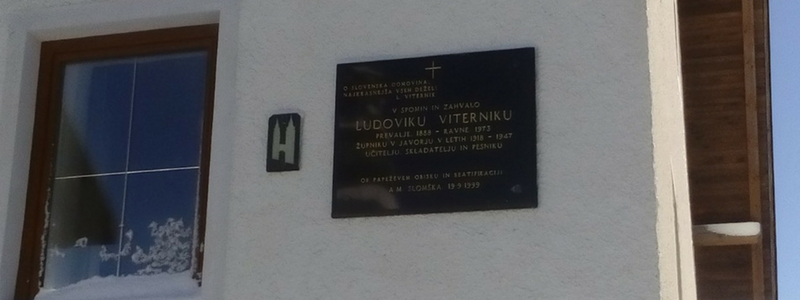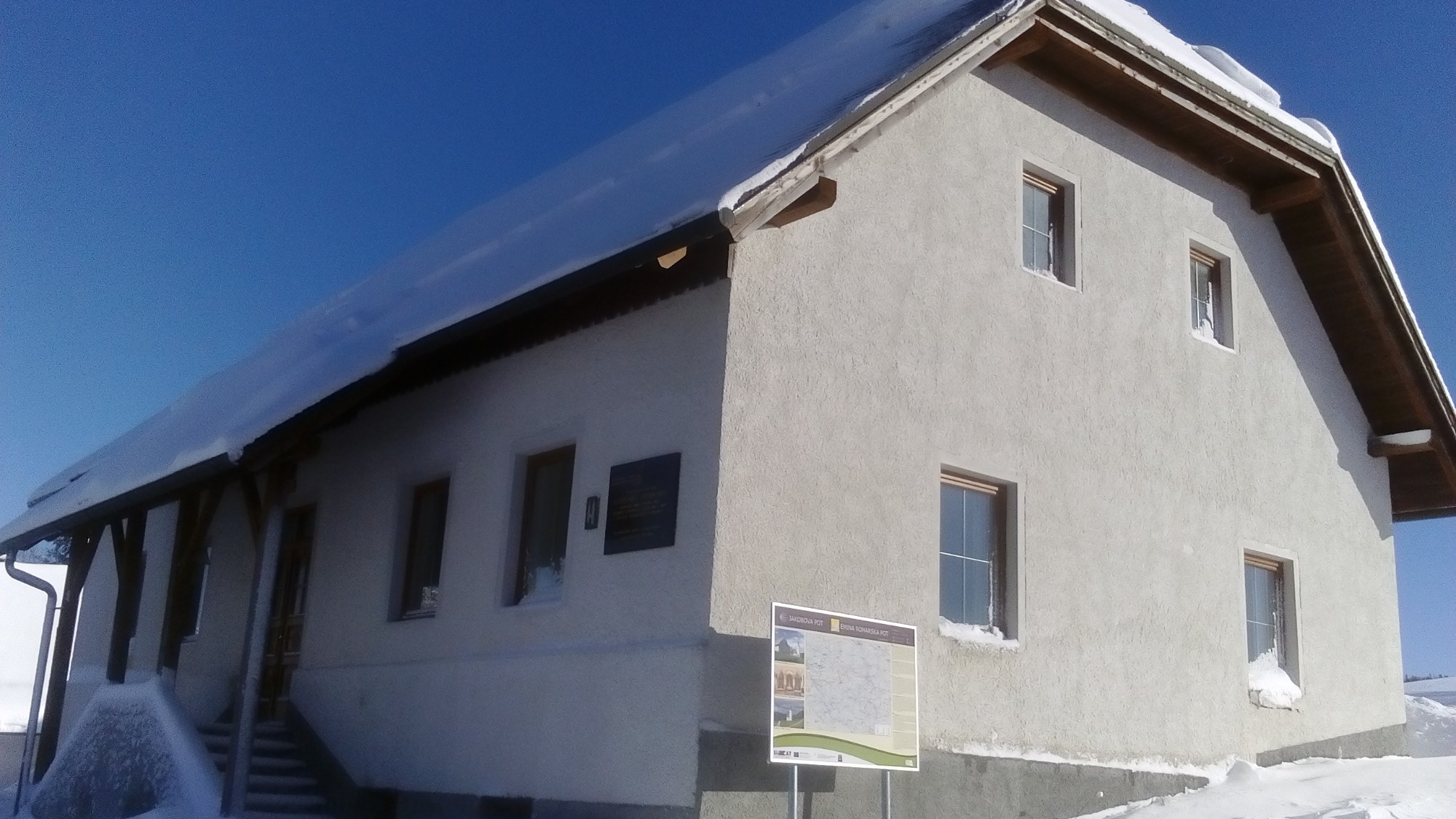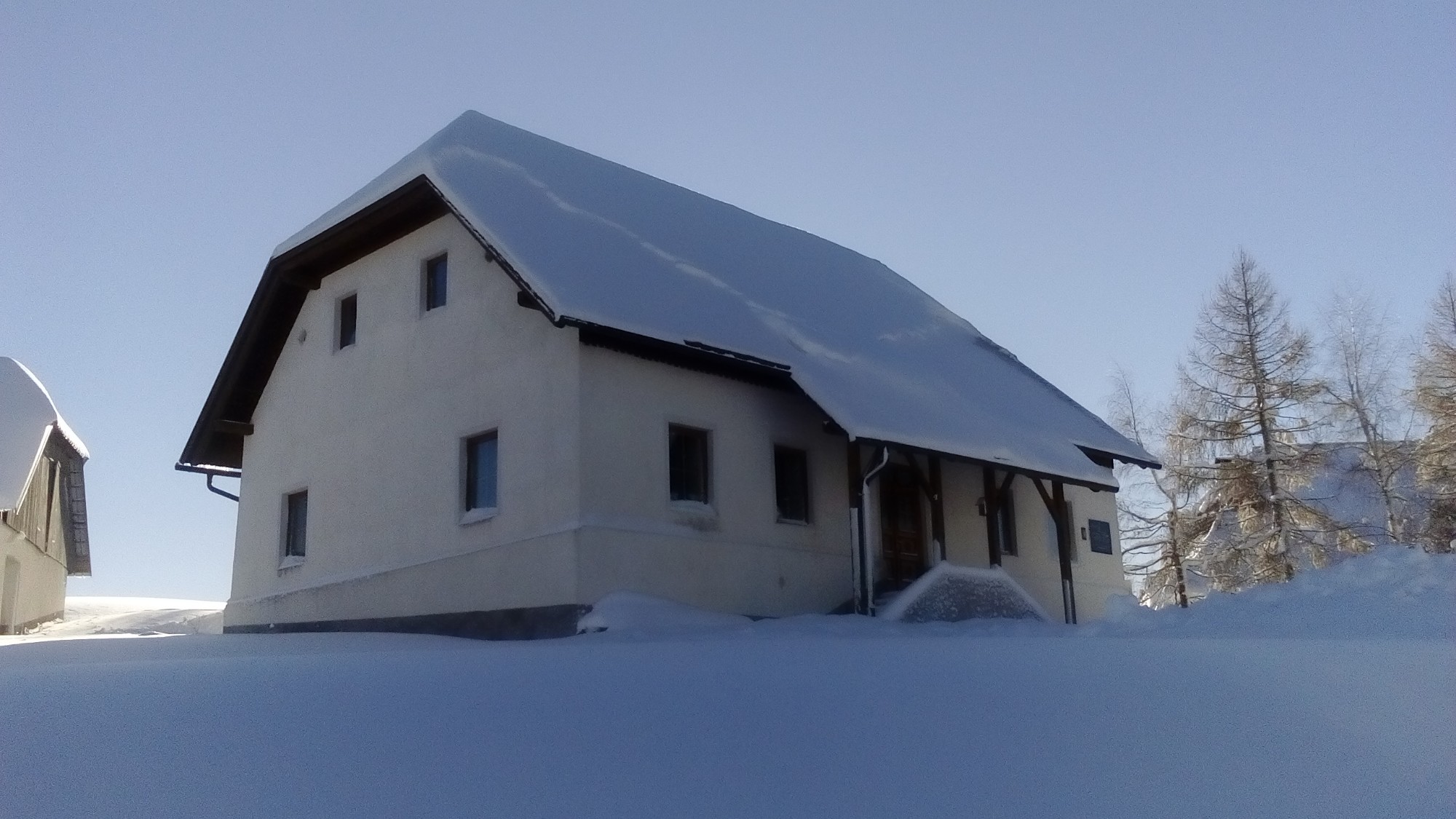The exhibits on show at the Ludvik Viternik memorial room, opened in 2007, include a piano that served Viternik as a composing tool, some of his personal belongings, a Bible and several items of clothing.
Ludvik Viternik
Ludvik Viternik (1888–1973) was a musician, composer and priest. Most of his compositions are choral songs, and he also wrote some piano and chamber music.
Born in Stražišče near Prevalje, Viternik took piano lessons and graduated from grammar school in Klagenfurt, Austria, and went on to study theology. As a theologian, Viternik studied harmony and counterpoint with a cathedral conductor, Franc Istel. He served as a curate in the Koroška region (Carinthia) and later became parish priest in Javorje above Črna na Koroškem. He served there until his retirement, when he withdrew to a farm at the foot of Uršlja gora (Mount St Ursula). In 1941, Viternik became a member of the Society of Slovenian Composers.
He wrote several church music works. His Slovenska maša (Slovenian Mass) was published in 1924 in Cerkveni glasbenik (Church Musician). Viternik’s most notable religious pieces include Ave Maria for voice and piano and Ave Maria for soprano, alto and piano, and the compositions K Mariji (To Saint Mary) and K Jezusovemu srcu (Into the Heart of Jesus). Secular works make up the bulk of his music legacy, including the song Slovenska domovina (Slovenian Homeland), which was included in Slovenska pesmarica (Slovenian Songbook) in 1964. Viternik scored a series of seven songs for mixed choir, Vojni izseljenec (War Emigrant), and songs Na Jadranu (On the Adriatic Sea), Uspavanka (Lullaby) for voice and piano and Uspavanka (Lullaby) for mixed choir, etc.
His most notable instrumental compositions are a piano Mazurka, Polka and lullabies. The compositions reflect a simple, tonal music texture with germs of the romantic idiom. The composer’s melodicism indicates that, while not receiving an advanced education in music, he had a natural gift.
Maia Juvanc



